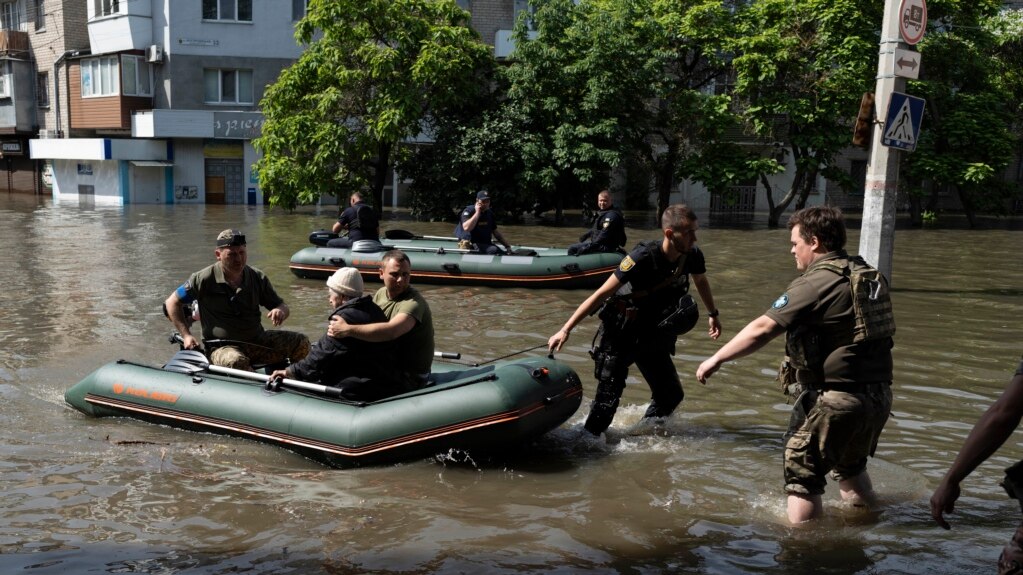Officials on Wednesday brought drinking water and supplies to areas flooded by the collapse of the Kakhovka dam in southern Ukraine.
The dam collapsed on Tuesday, causing thousands of people on both sides of the Dnieper River to flee their homes.
The river is in the southern Kherson region. It separates Russian and Ukrainian military forces. Ukraine holds the western side, while Russia controls the eastern side. The Russian side is lower and is more likely to be affected by flooding.
Officials say about 3,000 people have left flooded areas on both sides of the river. However, the true size of the disaster is not yet clear. More than 60,000 people live in the affected areas.
Officials in Russian-controlled areas said they evacuated almost 1,300 people. That compared to about 1,700 evacuated on the Ukrainian side where the population is larger.
The large dam was built in 1956. It is 30 meters tall and 3.2 kilometers long.
It provides electricity and water for drinking and farming for a huge area of southern Ukraine. It is also an important water supply for the Crimean Peninsula. Russia seized the area in 2014 in a move not recognized by most Western nations.
The cause of the dam collapse is not clear. Ukrainian officials claim Russian forces blew up the dam. They say the Russians did this to gain militarily in the war. Russia claims Ukraine destroyed the dam to cut off water to Crimea.
The Institute for the Study of War, a Washington, D.C. policy organization, said Russia has “a greater and clearer interest in flooding the lower Dnieper despite the damage to their own prepared defensive positions.”
However, some experts said the dam might have collapsed because of damage from the war. Less work has been done to keep it in good condition, and it has not produced electricity since November. Also, Britain’s Ministry of Defense said water levels of the Dnieper River and the reservoir behind the dam had been at high levels in recent days.
The Ministry warned that the dam is likely to become weaker over the next few days. It said this could add to the flooding.
People in Kherson held tightly to personal belongings as they walked through water in the streets or rode in boats. Video on social media showed rescuers carrying people to safety.
President Volodymyr Zelenskyy said Ukraine will ask international organizations for help.
Wheat prices jumped 2.4 percent after the collapse. Ukraine and Russia are big suppliers of wheat, barley, sunflower oil and other food to Africa, the Middle East and parts of Asia.
And both sides warned of environmental disaster from polluted waters, partly caused by oil leaking from the dam’s machinery.
I’m Andrew Smith.

